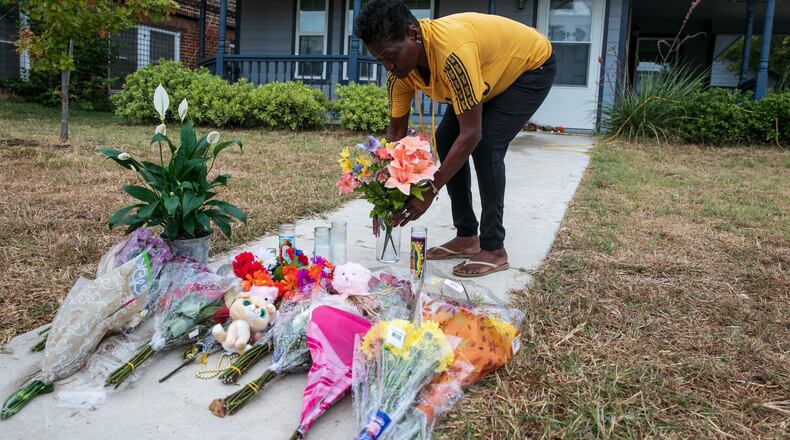America continues to wrestle with how to address the issue of questionable shootings by police officers. Georgia, and metro Atlanta, are no exception.
This nation finds itself repeatedly shocked these days by instances of police use of force that appear to have crossed lines most would call reasonable.
In many of these cases, the justice system reacts via our system of laws and courts. It’s fair to say the results, overall, have been mixed. It is also right to note that the American rule of law, though imperfect, should be respected. A civil society demands that much.
And where courts and criminal charges are by nature reactive, there seems a strong place for this society to be proactive as well in pursuing avenues that hold promise in reducing killings of people who are often unarmed, if not entirely innocent of a crime when they were killed.
We’d be remiss, as well, in not acknowledging the dangerous, stressful nature of police work in a society where horrendous violence is a common fact of modern life. We routinely ask a lot of our law enforcement officers and the great majority of those wearing uniforms and badges do their best – often under trying circumstances – and sometimes at the cost of their own lives.
It’s those officers whose good deeds are tarnished by the outliers who seem to take human life without justification.
This month alone, a DeKalb County jury returned a compromise verdict against an ex-officer who killed an unarmed, naked, mentally ill war veteran. He was acquitted of murder, and found guilty on lesser felony charges of violating oath of office, aggravated assault and making false statements. A few days before that verdict, a Dallas jury convicted a former police officer of killing a man eating ice cream in his home. Last weekend, a Fort Worth officer was quickly fired and charged with murder for fatally shooting a woman in her home.
There’s no question that America is, for many reasons, far too often a violent place. Police cannot reasonably ignore that reality. Yet, the pattern of questionable killings by police does point toward areas for potentially life-saving changes. Most would agree that police employed deadly force because they perceived a threat – even where there was none. That suggests biases, conscious or unconscious, that too often prove deadly, especially for people of color, the mentally ill, or both.
We have to believe that there are ways to better train law enforcement officers on how to respond in times of high stress. Ways to improve split-second judgments on whether to use force. Methods of better de-escalating confrontations, and thereby possibly avoiding loss of life or injury — to themselves or civilians.
Police work can only succeed if society regards officers as enforcers of the peace, and not as warriors too quick to employ a military-grade level of violence at times where it’s not warranted. The public and the police will both benefit if we can get to that place.
Andre Jackson, for the Editorial Board.
About the Author
Keep Reading
The Latest
Featured




